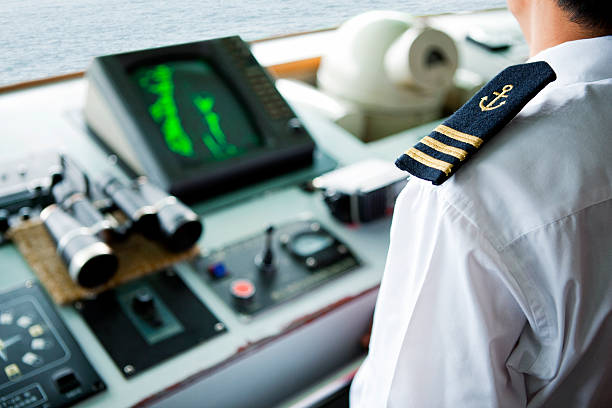Setting the Course: Crafting the Ideal Job Description for a Quartermaster

Introduction: In the intricate world of maritime operations, the role of a quartermaster stands out as essential, serving as the custodian of navigation and ensuring the vessel stays on course. A quartermaster’s responsibilities go beyond mere steering; they encompass a blend of navigational expertise, leadership, and meticulous attention to detail. Crafting an optimal job description for a quartermaster is pivotal in attracting qualified individuals who can navigate the complexities of maritime operations with precision and proficiency.

Page Contents
Job Title: Quartermaster
Job Overview: A quartermaster holds a pivotal position aboard vessels, responsible for assisting the officer of the watch in navigating the vessel safely and efficiently. Beyond steering duties, a quartermaster oversees navigational equipment, maintains accurate records, and plays a critical role in emergency response situations. With a keen eye for detail and a steadfast commitment to safety, a quartermaster ensures the vessel’s adherence to navigational protocols and regulatory requirements.
Key Responsibilities
- Navigation:
- Assist the officer of the watch in steering the vessel and maintaining the desired course.
- Monitor navigational instruments, including GPS, radar, and electronic chart display systems (ECDIS), to ensure accurate positioning and safe navigation.
- Calculate and plot the vessel’s position using celestial navigation techniques, charts, and navigational aids.
- Equipment Maintenance:
- Conduct regular checks and maintenance of navigational equipment, ensuring proper functioning and reliability.
- Maintain charts, publications, and navigational instruments in good condition, adhering to industry standards and regulatory requirements.
- Coordinate with the engineering department for the maintenance and repair of navigational systems as needed.
- Recordkeeping:
- Maintain accurate navigational logs, recording the vessel’s position, course, speed, and other relevant data at regular intervals.
- Document navigational hazards, weather conditions, and any unusual observations during the voyage.
- Prepare reports and logs for submission to relevant authorities and officers as required.
- Emergency Response:
- Participate in emergency drills and exercises, including man-overboard, abandon ship, and fire drills.
- Assist in the implementation of emergency procedures, such as deploying life-saving equipment and communicating distress signals.
- Remain vigilant and responsive to emergency situations, following established protocols to ensure the safety of the vessel and crew.
Qualifications and Skills: To excel as a quartermaster, individuals should possess the following qualifications and skills:
- Valid certification as a quartermaster or able seafarer deck.
- Extensive experience in navigation and seamanship, preferably on vessels of similar size and type.
- Proficiency in using navigational instruments and electronic navigation systems.
- Strong communication and teamwork skills, with the ability to collaborate effectively with other crew members and officers.
- Attention to detail and the ability to remain calm and focused under pressure.
- Knowledge of international maritime regulations and safety protocols.
The Salary Scale
The salary scale for a quartermaster varies based on factors such as experience, type of vessel, and geographical location. Generally, experienced quartermasters with advanced certifications and extensive sea time command higher salaries. On average, a quartermaster can expect to earn between $40,000 to $70,000 per year, with potential for higher earnings in specialized sectors or on larger vessels.
Additionally, some employers may offer benefits such as housing, meals, health insurance, and retirement plans as part of the compensation package. The salary of a quartermaster reflects the crucial role they play in ensuring the safe navigation and operation of vessels, making it a rewarding career path within the maritime industry.
Here are Some Common Benefits that the International Vessel Crew Members may Receive:
- Housing: Some employers provide accommodation on board the vessel for crew members during their work rotations. These accommodations may include individual cabins or shared living quarters, depending on the size and type of vessel.
- Meals: Crew members typically receive meals while on duty, with the cost covered by the employer. Meals are usually provided by onboard catering staff or prepared in the vessel’s galley (kitchen).
- Health Insurance: Many employers offer health insurance coverage for their crew members, which may include medical, dental, and vision insurance. This coverage helps ensure that crew members have access to necessary healthcare services while at sea or during port visits.
- Retirement Benefits: Some employers offer retirement savings plans or pension schemes for their crew members, helping them save for their future financial security.
- Paid Time Off: Crew members may be entitled to paid vacation days or leave periods, allowing them to take time off from work to rest and recharge. The amount of paid time off may vary depending on factors such as length of service and employment contract terms.
- Training and Certification: Employers may provide opportunities for crew members to receive training and obtain additional certifications relevant to their roles and career advancement. This may include safety training, specialized skills training, or courses to obtain higher-level maritime certifications.
- Travel Benefits: Depending on the nature of the vessel’s operations, crew members may have the opportunity to travel to different ports and destinations around the world as part of their job. Some employers may provide travel allowances or reimbursements for crew members’ transportation costs to and from the vessel.
- Employee Assistance Programs (EAPs): EAPs may be available to provide confidential counseling and support services to crew members facing personal or professional challenges while at sea or on shore leave.
Overall, these employee benefits help to support the well-being, safety, and job satisfaction of vessel crew members, contributing to a positive work environment and ensuring the continued success of maritime operations.
Conclusion
The role of a quartermaster is indispensable in ensuring the safe and efficient navigation of vessels at sea. By delineating clear responsibilities and qualifications, a well-crafted job description attracts competent individuals who can steer the vessel with precision and diligence. With their expertise in navigation, meticulous attention to detail, and commitment to safety, quartermasters play a vital role in charting the course for successful maritime operations.







